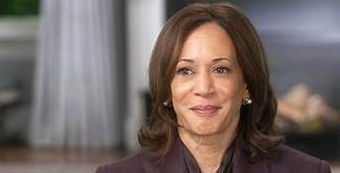The Democratic presidential nominee owns a type of weapon whose sales are restricted in California under a handgun safety law.
Vice President Kamala Harris is facing criticism for revealing that she owns a Glock, a firearm whose sale is restricted in California due to the state’s stringent gun laws. In an interview aired Monday on CBS News’ “60 Minutes,” Harris confirmed her ownership of the weapon, which she said she had possessed for some time. The disclosure has sparked backlash from Second Amendment groups and conservative media, who accuse her of hypocrisy because of her support for gun control measures.
Harris, a former prosecutor with a background in law enforcement, explained that the Glock is kept for personal protection. She also stated that she has used it at a shooting range. The Vice President’s campaign clarified that the gun was first mentioned in 2019 during her previous presidential run and is securely stored at her California home. Despite this, the revelation raised questions about how she was able to legally purchase the weapon, as California enforces strict regulations on firearm sales.
Under California’s 2001 handgun safety law, firearms sold in the state must meet specific safety standards. The law maintains a list of handguns approved for sale, and it excludes many Glock models released after 2010 due to their lack of certain safety features, such as magazine disconnects, which prevent firing when the magazine is removed. However, some older models, including Glocks purchased before the law’s enforcement, have been grandfathered in.
Harris’ gun ownership has been further scrutinized due to her longstanding stance on gun control. She has supported policies that would restrict the purchase of certain firearms and has advocated for measures such as universal background checks and the banning of assault weapons. This has led critics to question the Vice President’s personal use of a weapon that would typically be restricted under California law.
While there is an exemption for certain law enforcement officials under California law, it remains unclear whether Harris obtained an exemption or purchased the gun before the law was enacted. The campaign did not specify how or when Harris acquired the Glock, nor did it disclose the model or how it is stored. The controversy has drawn attention to the complex relationship between public figures and their stances on gun control, especially when their personal actions seem to contradict their policy positions.
As the criticism mounts, Harris has maintained that the gun is solely for self-defense and pointed to her long history of legal and law enforcement work as part of the context for owning a weapon. While her residence is guarded by armed Secret Service agents, the Vice President has emphasized the importance of being prepared for personal safety, further fueling the debate over the intersection of policy and personal choices.

